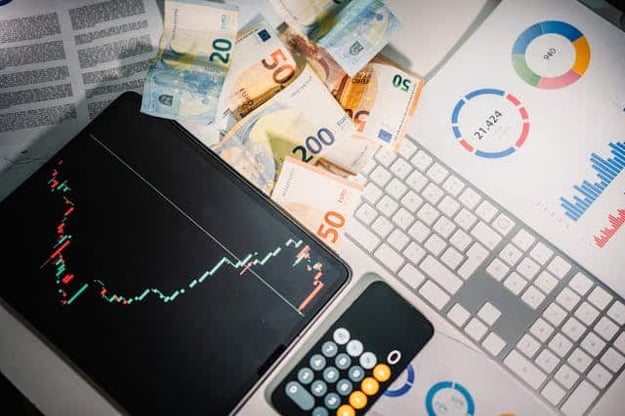Maximize Your Earnings: Tips for Smart Forex Trades


Forex trading offers potential profit through the buying and selling of currencies, allowing traders to earn from fluctuating currency values. However, as exciting as it may seem, this method also requires careful planning, effective strategies, and an understanding of the market to maximize earnings truly. This article explores practical tips and techniques for making smart forex trades and navigating the forex market effectively.
1. Understanding the Forex Market and Its Volatility
The forex market is the world’s largest financial market, and it operates 24 hours a day across major global financial centers. The unique nature of this market, with its high trading volume and constant activity, creates both opportunities and risks. Currency values fluctuate due to various factors like economic indicators, political events, and global news.
Understanding the market’s volatility is crucial for traders. Smart forex traders analyze market trends, economic data, and geopolitical events that may influence currency movements. By staying informed, traders can make better decisions and reduce the risks that come with the market’s unpredictable nature.
2. Setting Clear Goals and Strategies
Before jumping into forex trades, it’s important to set clear goals and have a strategy in place. A trading goal might be to make a certain profit or achieve a steady monthly income. Once a goal is defined, traders can then select the trading style that aligns with it, whether it’s day trading, swing trading, or long-term investing.
Strategic planning is key to successful trading. Technical analysis involves studying charts, patterns, and indicators to predict future price movements, while fundamental analysis focuses on economic factors. Furthermore, a well-thought-out strategy helps traders make consistent decisions and avoid impulsive trades based on emotions.
3. Implementing a Risk Management Plan
One of the most important aspects of forex trading is risk management. Without a clear risk management plan, traders may find themselves exposed to large losses. Risk management strategies include setting stop-loss orders, limiting the amount of capital invested per trade, and maintaining a diversified portfolio.
Stop-loss orders allow traders to automatically exit a trade when a certain price is reached, limiting potential losses. Therefore, you should decide on a risk-to-reward ratio, to compare the expected profits to potential losses. By managing risks effectively, traders can protect their capital, which is essential for long-term success in foreign exchange trading.
4. Understanding Currency Pairs and Their Characteristics
Foreign exchange trading involves trading currency pairs, where one currency is bought, and another is sold simultaneously. Common currency pairs for trading include EUR/USD, USD/JPY, and GBP/USD. Each currency pair behaves differently, influenced by factors like interest rates, economic stability, and geopolitical events.
Learning the characteristics of different currency pairs helps traders choose which ones to trade based on their strategies. For instance, some pairs are known for their stability, while others have high volatility. Understanding these pairs and their movements can help traders make better decisions and increase their chances of success in the forex market.
5. Monitoring Global Economic Indicators
Economic indicators, such as interest rates, employment data, and inflation rates, play a big role in influencing currency prices. Traders who monitor these indicators can anticipate potential currency movements. Central banks, for example, set interest rates that directly impact a currency’s strength or weakness.
Furthermore, by staying updated on economic indicators, traders can make better-informed decisions. Many forex traders follow an economic calendar to keep track of important data releases and announcements. Being aware of these events and understanding their impact can help traders react promptly and capitalize on potential price shifts in the market.
6. Continuing Education and Practice
Foreign exchange trading is a skill that requires ongoing learning and practice. The forex market constantly evolves, with new tools, strategies, and trends emerging over time. Traders who stay updated and continue to educate themselves can adapt to changes and improve their trading skills.
Many traders benefit from using demo accounts to practice trading strategies without risking real money. Demo accounts allow traders to gain experience and confidence before entering the live market. By practicing regularly and learning from past trades, traders can continuously improve and increase their chances of long-term success.
7. Adapting to Changing Market Conditions
Forex markets can change rapidly due to unexpected news or events. To succeed, traders must be adaptable. Relying solely on a single strategy or approach may not work in every market condition, so traders must remain flexible and adjust their strategies when needed.
Adapting to the market requires understanding the bigger economic picture and staying informed about global events. Traders who can quickly adapt their approach are better positioned to capitalize on opportunities or mitigate risks as market conditions shift.
Maximizing earnings in foreign exchange trading involves a mix of planning, discipline, and flexibility. By understanding the market’s volatility, setting clear goals, managing risk, and staying informed, traders can increase their chances of success. Implementing these smart Forex strategies, helps traders make smart decisions and navigate the complexities of the forex market. Foreign exchange trading offers many opportunities, but approaching it with caution and a strategic mindset is essential for achieving long-term profitability.









